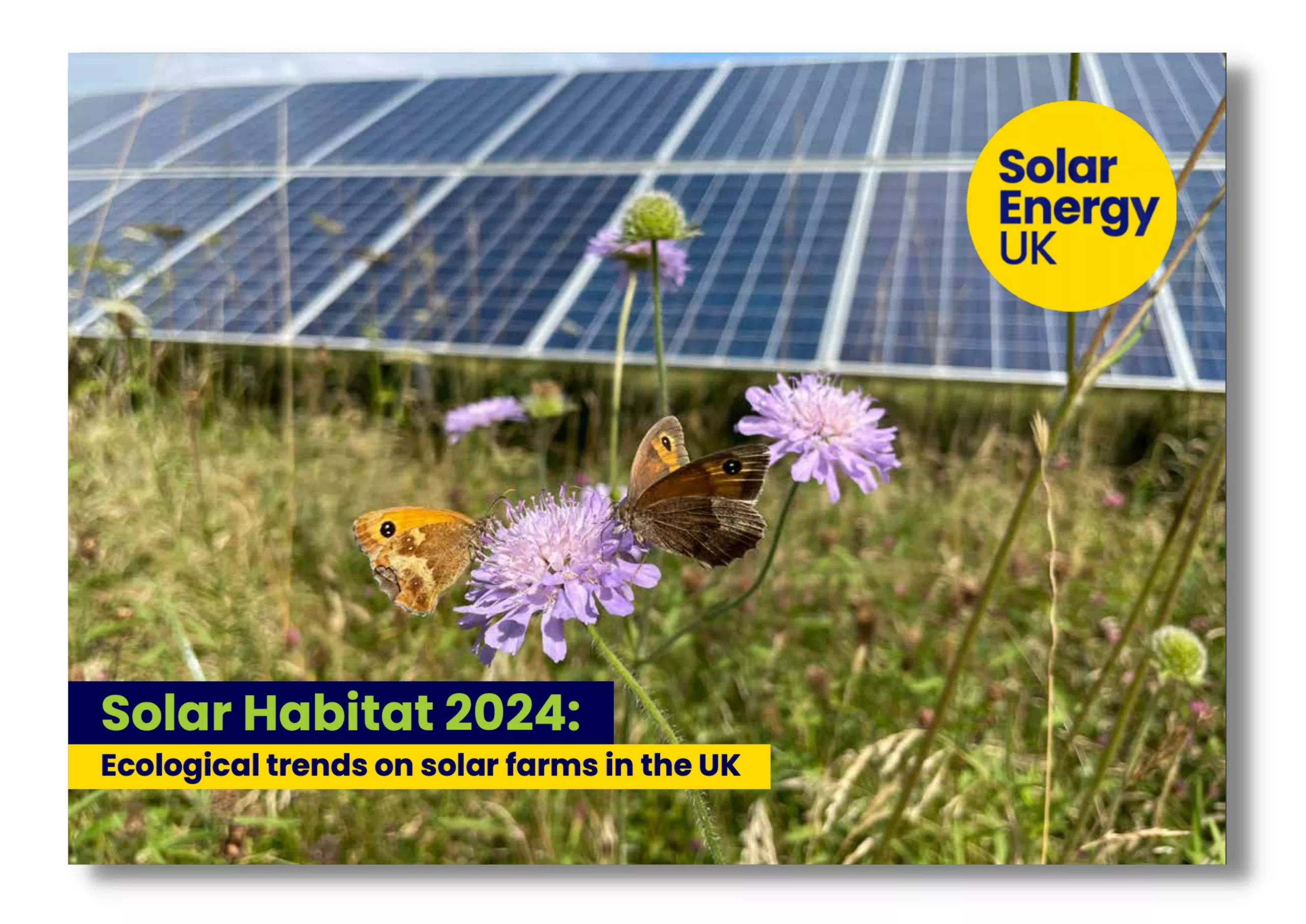Monitoring solar farms across the UK has needed more consistency for too long, hindering our ability to draw meaningful comparisons between sites. In response to this challenge, Solar Energy UK, in collaboration with Lancaster University, Clarkson & Woods, and Wychwood Biodiversity, spearheaded the introduction of a standardised approach to biodiversity monitoring on solar farms.
This pioneering standardisation initiative has transformed data collection practices and paved the way for a more comprehensive understanding of ecological trends within solar farm environments. It’s a significant step forward in our collective efforts to manage solar farms effectively.
The inaugural Solar Habitat report, published in May 2023, marked a pivotal moment in our journey. It shed light on ecological trends across 37 meticulously monitored sites in 2022. Building upon this foundation, our latest report continues this crucial work, collating data from 87 sites surveyed throughout 2023.
The substantial increase in data collection in this year’s report strengthens our ability to discern trends between management approaches and biodiversity. From botany to invertebrates, birds, and mammals, our structured surveys and incidental observations reveal the complex relationships shaping biodiversity within solar farms.
While direct year-on-year comparisons are limited, accumulating data over time promises to illuminate temporal trends, management impacts, and changes in biodiversity as sites mature. With periodic reviews to refine our standardised methodology, our reports are indispensable tools for site managers, policymakers, ecologists, and local authorities in effective solar farm management.
Despite representing a mere 6% of the 1,400 solar farms operating in the UK, the 87 sites surveyed in 2023 provide a vital glimpse into the broader ecological landscape. As demand for monitoring grows, so will the number of sites and contributing ecological consultancies, fueling our quest for a deeper understanding of biodiversity on solar farms.


